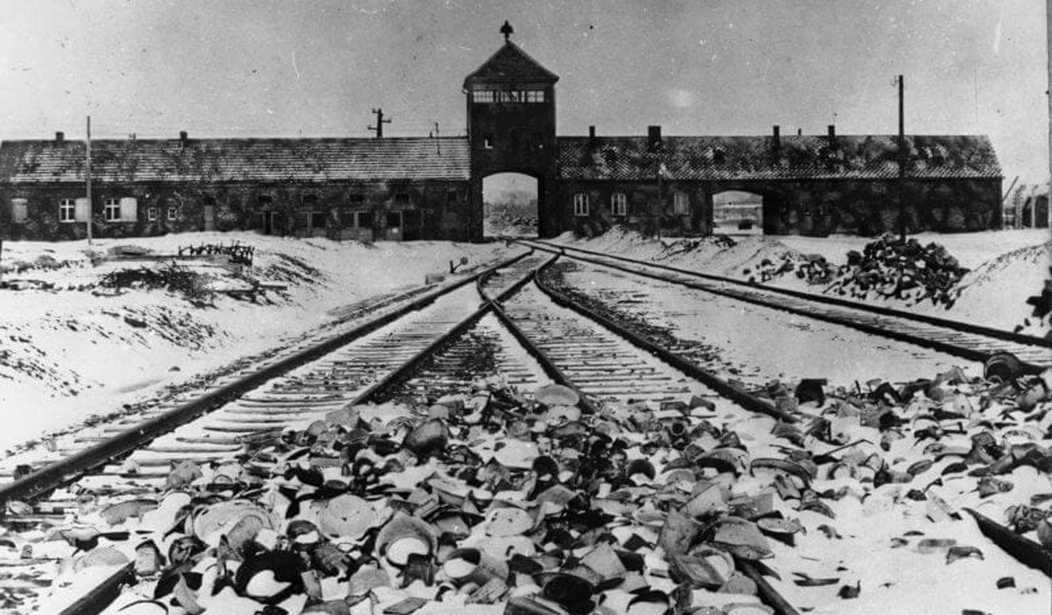Unless you live under a rock, you’ve already heard that President Donald Trump omitted referring to the six million Jewish souls lost to genocidal murder during his remarks on International Holocaust Remembrance Day. In a press conference after the fact, GOP Chair Reince Priebus acknowledged that while the White House “will never forget the Jewish people that suffered in World War II,” he doesn’t regret the president’s lack of public acknowledgement.
Historically speaking, there was a time in recent American history when Jewish Americans would be relieved that such an omission took place. In the dark days immediately following the Holocaust, before the genocide was even truly named “the Holocaust,” American Jews wrestled with how to manage the mass murder. How could they assist the victims? What role should they play in the recovery? How much should we talk about it? How can we make sure this never happens again? All of these questions were fueled, in part, by an underlying feeling of guilt, not just for surviving, but for having ancestors – parents, even – who had made the choice to leave in the nick of time so that the suffering of their brethren was not their own. To be sure, there was a school of thought that believed the less said, the better. After all, we’re all Americans anyway, right? Just be content fitting in and being left alone.
Obviously, these folks were in the minority. Fast-forward a few generations and you have state-mandated Holocaust education programs, locally funded educational resource centers, and a national museum dedicated to the mission of remembering history in order to end genocide. Despite our many political and religious disputes, the Jewish people consistently unite around the Holocaust, not Israel. For American Jews it is both easier and safer to rally around victimization than victory. It spares us the negative side-effects of dual-loyalty accusations and plays into what politically correct culture values above all else: the persecuted minority. The Holocaust has managed to do what no one person or event has ever been able to accomplish: Allow Jews to fit into the larger American culture while retaining their unique identity as Jews.
This makes Trump’s failure to specifically call out the six million Jews who perished in the Holocaust especially troublesome. Not only did he fail to condemn his neo-Nazi and anti-Semitic alt-right supporters during the election; now, he fails to acknowledge the event that both epitomizes Jewish suffering and grants uniqueness to American Jews. It is as if the Trump administration is asking Jewish Americans, “What is it that you’re complaining about, anyway?” But, with son-in-law Jared Kushner installed in an advisory position and occasional bones like embassy moves thrown our way, the punctuation point is this: “You’re one of us. So stop your whining.”
A reluctant compliment is a compliment nonetheless. Or is it? Talmudically speaking, the law of ahavat Yisrael, the love of the Jewish people, teaches that “…demonstrations of love count for less, paradoxically, than love itself,” a point recently well made by Bernard Henri Levy. Making lovey-dovey with particulars in the Orthodox world does not justify conveniently divorcing the Jews from the Holocaust. Nor does conveniently divorcing the Jews from the Holocaust serve to imply that we are now an accepted part of mainstream (that is to say, WASP) America. What it does is demean the suffering of the Jewish people and deny the hard-won place Jewish Americans have claimed within the larger culture. It also aims to do one more seriously damaging thing: Increase the division between an already divided people.
Fortunately, for the majority of Jewish Americans across the political spectrum the Holocaust is a line that cannot be crossed. The real issue, however, isn’t whether or not the six million should be remembered by name, but what their omission means to the future of Jewish America. The president himself has expressed admiration for Vladimir Putin, head of a government that has a long history of ignoring or downplaying Jewish suffering in the Holocaust, an act International Holocaust Remembrance Day was specifically designed to combat. Proven an unfriendly place for Jews, Russia’s Jewish population is immigrating to Israel en masse because, as one now-Israeli Russian notes,
The big problem with Russia, and the main reason why I left, is the fact that our value system was destroyed. Life in Russia has turned into Russian roulette. Every morning you turn the roulette wheel, you never know what is going to happen to you.
In an era of immigration policies that punish victim alongside oppressor, Jewish Americans should fight for the recognition of the six million while seriously considering the idea that finding refuge in being a member of the victim class is no longer a safe bet even on seemingly friendly shores.









Join the conversation as a VIP Member